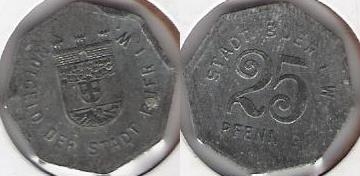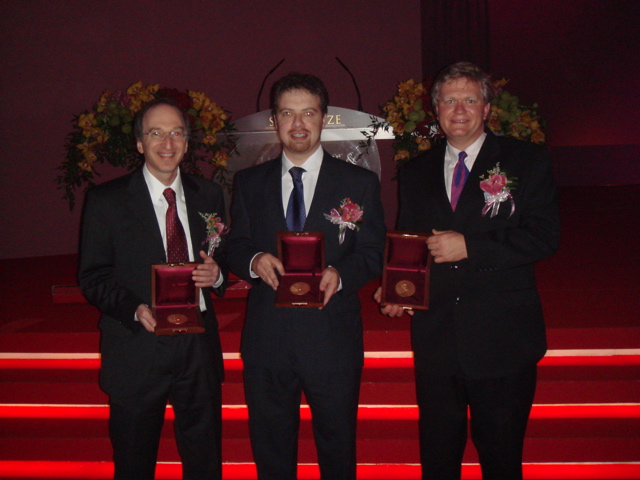|
Gerd Faltings
Gerd Faltings (; born 28 July 1954) is a German mathematician known for his work in arithmetic geometry. Education From 1972 to 1978, Faltings studied mathematics and physics at the University of Münster. In 1978 he received his PhD in mathematics. Career and research In 1981 he obtained the ''venia legendi'' (Habilitation) in mathematics, from the University of Münster. During this time he was an assistant professor at the University of Münster. From 1982 to 1984, he was professor at the University of Wuppertal. From 1985 to 1994, he was professor at Princeton University. In the fall of 1988 and in the academic year 1992–1993 he was a visiting scholar at the Institute for Advanced Study. In 1986 he was awarded the Fields Medal at the ICM at Berkeley for proving the Tate conjecture for abelian varieties over number fields, the Shafarevich conjecture for abelian varieties over number fields and the Mordell conjecture, which states that any non-singular projective curve ... [...More Info...] [...Related Items...] OR: [Wikipedia] [Google] [Baidu] |
Buer, Germany
Buer is the largest suburb of Gelsenkirchen in North Rhine-Westphalia North Rhine-Westphalia (german: Nordrhein-Westfalen, ; li, Noordrien-Wesfale ; nds, Noordrhien-Westfalen; ksh, Noodrhing-Wäßßfaale), commonly shortened to NRW (), is a state (''Land'') in Western Germany. With more than 18 million inha .... The Hochstrasse in the heart of Buer is the largest shopping street in Gelsenkirchen. History In 1928, the adjoining cities of Buer, Gelsenkirchen, and Horst merged to form Gelsenkirchen-Buer, which was renamed Gelsenkirchen in 1930. The Scholven/Buer synthetic oil plant was a bombing target of the Oil Campaign of World War II (the Buer town hall survived in nearly original form). Notable people * Gerd Faltings Gelsenkirchen Oil campaign of World War II {{Gelsenkirchen-geo-stub ... [...More Info...] [...Related Items...] OR: [Wikipedia] [Google] [Baidu] |
Faltings's Product Theorem
In arithmetic geometry In mathematics, arithmetic geometry is roughly the application of techniques from algebraic geometry to problems in number theory. Arithmetic geometry is centered around Diophantine geometry, the study of rational points of algebraic varieties. ..., Faltings' product theorem gives sufficient conditions for a subvariety of a product of projective spaces to be a product of varieties in the projective spaces. It was introduced by in his proof of Lang's conjecture that subvarieties of an abelian variety containing no translates of non-trivial abelian subvarieties have only finitely many rational points. and gave explicit versions of Faltings' product theorem. References * * * Diophantine approximation Theorems in number theory {{numtheory-stub ... [...More Info...] [...Related Items...] OR: [Wikipedia] [Google] [Baidu] |
Die Zeit
''Die Zeit'' (, "The Time") is a German national weekly newspaper published in Hamburg in Germany. The newspaper is generally considered to be among the German newspapers of record and is known for its long and extensive articles. History The first edition of ''Die Zeit'' was first published in Hamburg on 21 February 1946. The founding publishers were Gerd Bucerius, Lovis H. Lorenz, Richard Tüngel and Ewald Schmidt di Simoni. Another important founder was Marion Gräfin Dönhoff, who joined as an editor in 1946. She became publisher of ''Die Zeit'' from 1972 until her death in 2002, together from 1983 onwards with former German chancellor Helmut Schmidt, later joined by Josef Joffe and former German federal secretary of culture Michael Naumann. The paper's publishing house, Zeitverlag Gerd Bucerius in Hamburg, is owned by the Georg von Holtzbrinck Publishing Group and Dieter von Holtzbrinck Media. The paper is published weekly on Thursdays. As of 2018, ''Die Zeit'' ... [...More Info...] [...Related Items...] OR: [Wikipedia] [Google] [Baidu] |
Professor
Professor (commonly abbreviated as Prof.) is an academic rank at universities and other post-secondary education and research institutions in most countries. Literally, ''professor'' derives from Latin as a "person who professes". Professors are usually experts in their field and teachers of the highest rank. In most systems of academic ranks, "professor" as an unqualified title refers only to the most senior academic position, sometimes informally known as "full professor". In some countries and institutions, the word "professor" is also used in titles of lower ranks such as associate professor and assistant professor; this is particularly the case in the United States, where the unqualified word is also used colloquially to refer to associate and assistant professors as well. This usage would be considered incorrect among other academic communities. However, the otherwise unqualified title "Professor" designated with a capital letter nearly always refers to a full professo ... [...More Info...] [...Related Items...] OR: [Wikipedia] [Google] [Baidu] |
Habilitation
Habilitation is the highest university degree, or the procedure by which it is achieved, in many European countries. The candidate fulfills a university's set criteria of excellence in research, teaching and further education, usually including a dissertation. The degree, abbreviated "Dr. habil." (Doctor habilitatus) or "PD" (for "Privatdozent"), is a qualification for professorship in those countries. The conferral is usually accompanied by a lecture to a colloquium as well as a public inaugural lecture. History and etymology The term ''habilitation'' is derived from the Medieval Latin , meaning "to make suitable, to fit", from Classical Latin "fit, proper, skillful". The degree developed in Germany in the seventeenth century (). Initially, habilitation was synonymous with "doctoral qualification". The term became synonymous with "post-doctoral qualification" in Germany in the 19th century "when holding a doctorate seemed no longer sufficient to guarantee a proficient transfer ... [...More Info...] [...Related Items...] OR: [Wikipedia] [Google] [Baidu] |
Physics
Physics is the natural science that studies matter, its fundamental constituents, its motion and behavior through space and time, and the related entities of energy and force. "Physical science is that department of knowledge which relates to the order of nature, or, in other words, to the regular succession of events." Physics is one of the most fundamental scientific disciplines, with its main goal being to understand how the universe behaves. "Physics is one of the most fundamental of the sciences. Scientists of all disciplines use the ideas of physics, including chemists who study the structure of molecules, paleontologists who try to reconstruct how dinosaurs walked, and climatologists who study how human activities affect the atmosphere and oceans. Physics is also the foundation of all engineering and technology. No engineer could design a flat-screen TV, an interplanetary spacecraft, or even a better mousetrap without first understanding the basic laws of physic ... [...More Info...] [...Related Items...] OR: [Wikipedia] [Google] [Baidu] |
Mathematics
Mathematics is an area of knowledge that includes the topics of numbers, formulas and related structures, shapes and the spaces in which they are contained, and quantities and their changes. These topics are represented in modern mathematics with the major subdisciplines of number theory, algebra, geometry, and analysis, respectively. There is no general consensus among mathematicians about a common definition for their academic discipline. Most mathematical activity involves the discovery of properties of abstract objects and the use of pure reason to prove them. These objects consist of either abstractions from nature orin modern mathematicsentities that are stipulated to have certain properties, called axioms. A ''proof'' consists of a succession of applications of deductive rules to already established results. These results include previously proved theorems, axioms, andin case of abstraction from naturesome basic properties that are considered true starting points of t ... [...More Info...] [...Related Items...] OR: [Wikipedia] [Google] [Baidu] |
Arithmetic Geometry
In mathematics, arithmetic geometry is roughly the application of techniques from algebraic geometry to problems in number theory. Arithmetic geometry is centered around Diophantine geometry, the study of rational points of algebraic varieties. In more abstract terms, arithmetic geometry can be defined as the study of schemes of finite type over the spectrum of the ring of integers. Overview The classical objects of interest in arithmetic geometry are rational points: sets of solutions of a system of polynomial equations over number fields, finite fields, p-adic fields, or function fields, i.e. fields that are not algebraically closed excluding the real numbers. Rational points can be directly characterized by height functions which measure their arithmetic complexity. The structure of algebraic varieties defined over non-algebraically closed fields has become a central area of interest that arose with the modern abstract development of algebraic geometry. Over finite fi ... [...More Info...] [...Related Items...] OR: [Wikipedia] [Google] [Baidu] |
Mathematician
A mathematician is someone who uses an extensive knowledge of mathematics in their work, typically to solve mathematical problems. Mathematicians are concerned with numbers, data, quantity, structure, space, models, and change. History One of the earliest known mathematicians were Thales of Miletus (c. 624–c.546 BC); he has been hailed as the first true mathematician and the first known individual to whom a mathematical discovery has been attributed. He is credited with the first use of deductive reasoning applied to geometry, by deriving four corollaries to Thales' Theorem. The number of known mathematicians grew when Pythagoras of Samos (c. 582–c. 507 BC) established the Pythagorean School, whose doctrine it was that mathematics ruled the universe and whose motto was "All is number". It was the Pythagoreans who coined the term "mathematics", and with whom the study of mathematics for its own sake begins. The first woman mathematician recorded by history was Hyp ... [...More Info...] [...Related Items...] OR: [Wikipedia] [Google] [Baidu] |
Cantor Medal
The Cantor medal of the Deutsche Mathematiker-Vereinigung is named in honor of Georg Cantor, the first president of the society. It is awarded at most every second year during the yearly meetings of the society. The prize winners are mathematicians who are associated with the German language. Prize winners * 1990 Karl Stein. * 1992 Jürgen MoserThe Georg Cantor Medal of the ''Deutsche Mathematiker-Vereinigung'' , , retrieved 5 June 2014. * 1994 |
Shaw Prize
The Shaw Prize is an annual award presented by the Shaw Prize Foundation. Established in 2002 in Hong Kong, it honours "individuals who are currently active in their respective fields and who have recently achieved distinguished and significant advances, who have made outstanding contributions in academic and scientific research or applications, or who in other domains have achieved excellence. The award is dedicated to furthering societal progress, enhancing quality of life, and enriching humanity's spiritual civilization." The prize has been described as the "Nobel of the East". It was founded by Hong Kong entertainment mogul and philanthropist Run Run Shaw (邵逸夫). Award The prize consists of three awards in the fields of astronomy, life science and medicine, and mathematical sciences; it is not awarded posthumously. Nominations are submitted by invited individuals beginning each year in September. Winners are announced in the summer and receive the award at a ce ... [...More Info...] [...Related Items...] OR: [Wikipedia] [Google] [Baidu] |
King Faisal International Prize
The King Faisal Prize ( ar, جائزة الملك فيصل, formerly King Faisal International Prize), is an annual award sponsored by King Faisal Foundation presented to "dedicated men and women whose contributions make a positive difference". The foundation awards prizes in five categories: Service to Islam; Islamic studies; the Arabic language and Arabic literature; science; and medicine. Three of the prizes are widely considered as the most prestigious awards in the Muslim world. The first King Faisal Prize was awarded to the Pakistani scholar Abul A'la Maududi in the year 1979 for his service to Islam. In 1981, Khalid of Saudi Arabia received the same award. In 1984, Fahd of Saudi Arabia was the recipient of the award. In 1986, this prize was co-awarded to Ahmed Deedat and French Roger Garaudy. Award process Designation of subjects Each year, the selection committees designate subjects in Islamic Studies, Arabic Literature, and Medicine. Selected topics in Islamic Studi ... [...More Info...] [...Related Items...] OR: [Wikipedia] [Google] [Baidu] |





